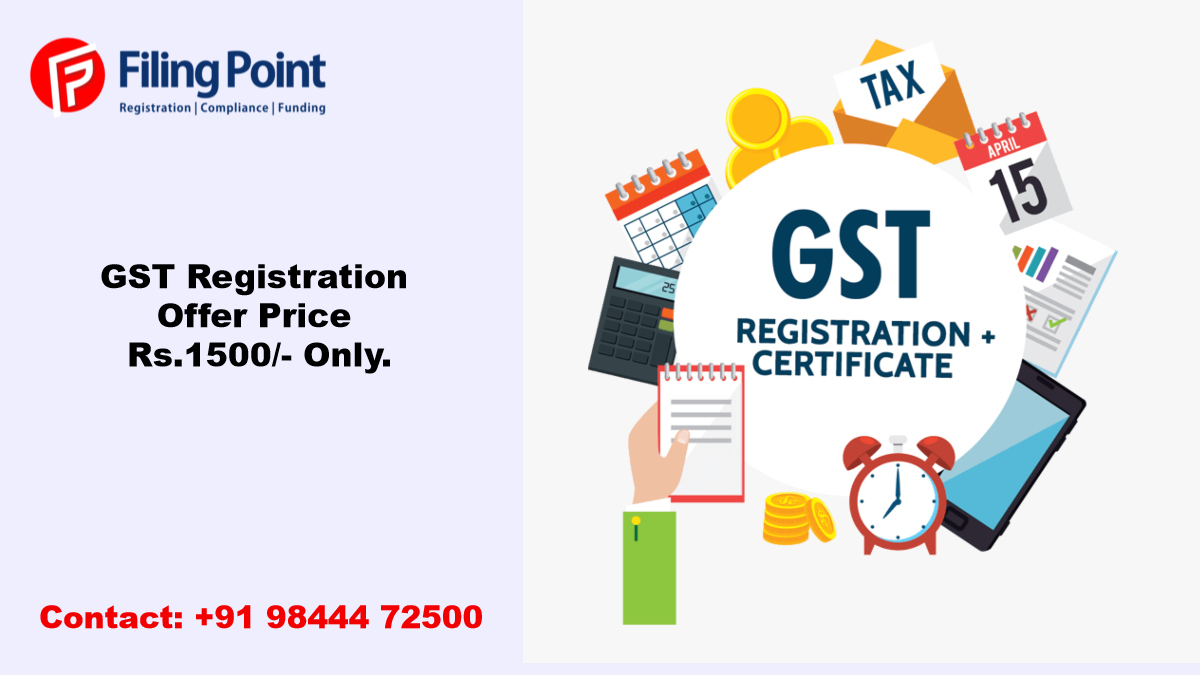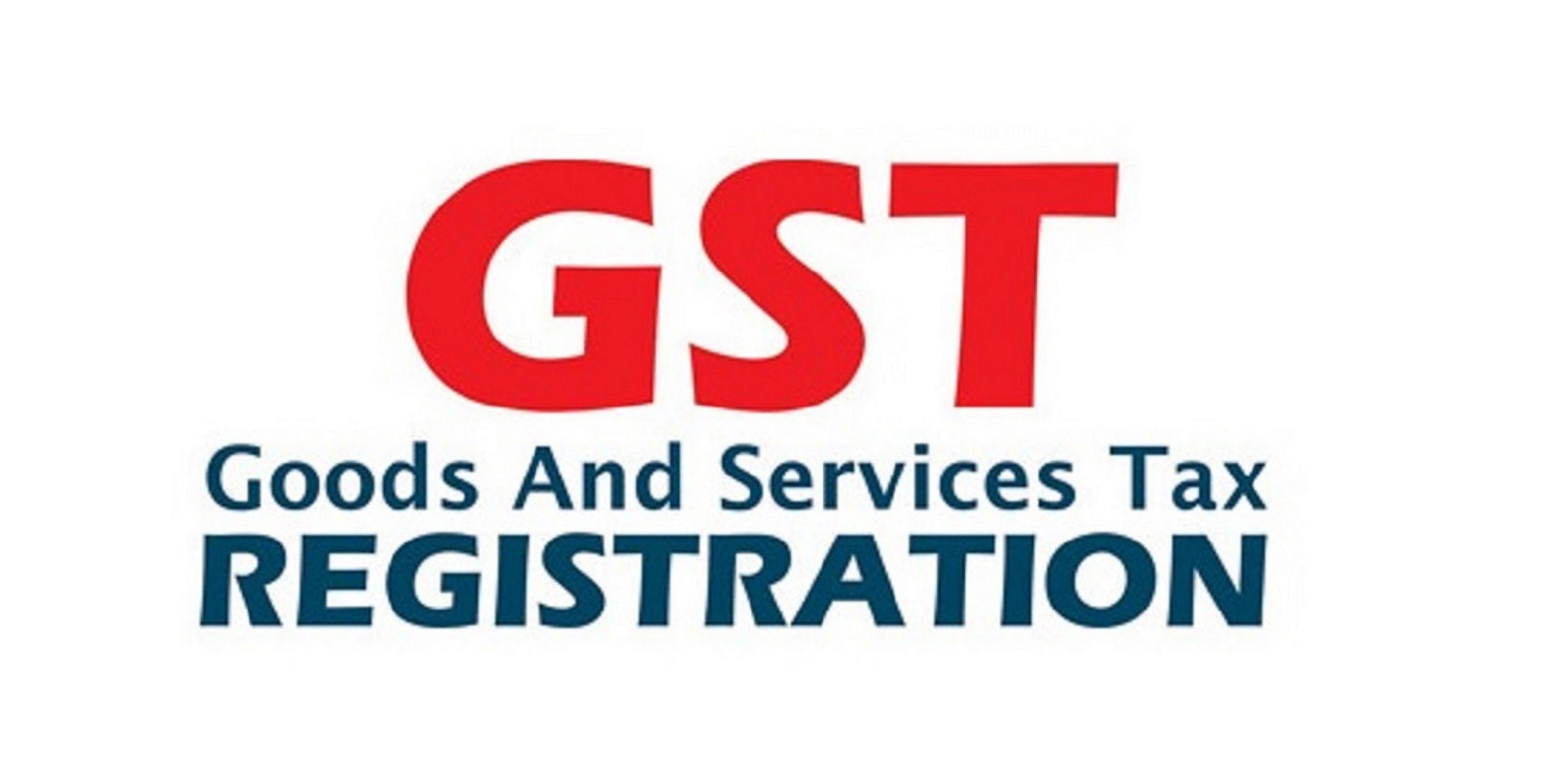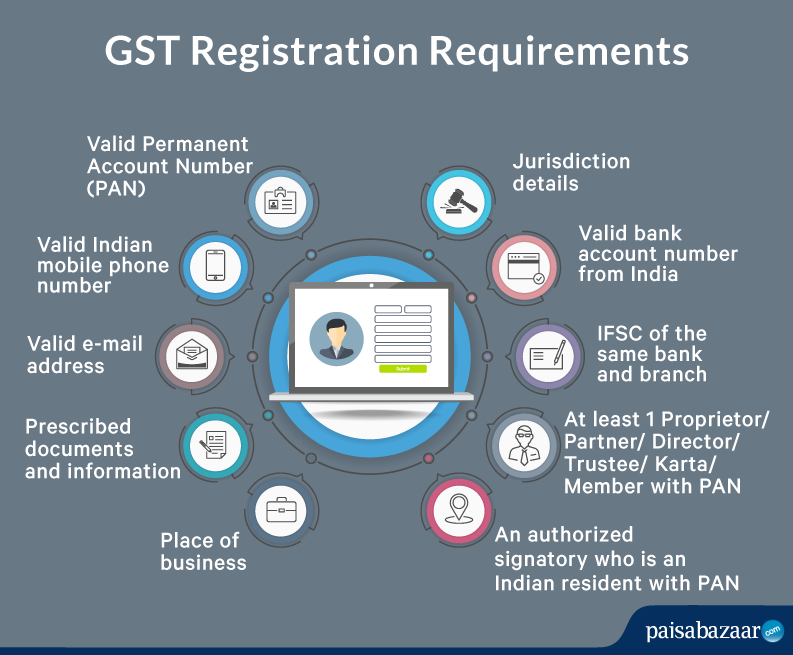Browsing the Intricacies of GST Enrollment: Professional Tips and Best Practices for Smoother Compliance
Navigating the elaborate landscape of Goods and Services Tax (GST) registration requires an eager understanding of the advancing regulatory structure and thorough focus to detail. As businesses aim to ensure compliance and avoid pitfalls, expert advice and best techniques can function as vital compass factors in this facility terrain. From decoding registration demands to utilizing technical tools for streamlined processes, the trip towards smoother GST compliance is complex and nuanced. Keep tuned to discover crucial strategies and insights that can help companies guide through the complexities of GST enrollment with skill and confidence.
Understanding GST Enrollment Demands

Along with turnover thresholds, services taking part in interstate sales or giving taxed services may additionally be needed to sign up for GST, also if their turn over is below the suggested limit (Singapore GST Registration). Comprehending these needs and limits is important to avoid penalties and make sure smooth procedures within the lawful framework
Moreover, organizations have to collect and prepare the required paperwork, such as proof of identification, address, business incorporation, and savings account details, before launching the GST registration process. Failing to supply precise details or fulfill the enrollment target dates can result in fines or other lawful consequences. As a result, organizations need to remain informed about the specific GST registration demands applicable to their procedures to keep conformity and prevent prospective problems.
Organizing Crucial Documentation
Businesses starting the GST registration procedure must thoroughly assemble and arrange the essential documents required for submission. The vital documents usually required for GST registration include evidence of business enrollment or identification, incorporation and address proofs of business owners or partners, savings account details, proof of primary business, and consent types. Ensuring that these files are conveniently available and arranged can enhance the enrollment process and prevent denials or hold-ups.
To efficiently arrange essential paperwork, businesses ought to create a centralized system for keeping and classifying the needed paperwork (Singapore GST Registration). Using digital storage solutions can assist keep very easy gain access to and make certain that files are safely kept. Additionally, establishing a list of all required records can work as a handy tool to track what has been collected and what is still needed for entry

Leveraging Modern Technology for Effectiveness
Enhancing operational efficiency via technical assimilation is critical for modern organizations navigating the complexities of GST registration. One of the vital ways innovation can assist in GST registration is with the use of automated software program remedies.
Additionally, technology can facilitate seamless interaction with tax obligation authorities. Online portals and interaction devices make it possible for businesses to send documents, solve inquiries, and get updates in a more reliable way. This not only accelerates the enrollment procedure yet also aids in maintaining clear and reliable communication with the relevant authorities.
Furthermore, cloud-based storage space options supply a safe and secure system for businesses to shop and access their monetary data, making certain compliance with GST record-keeping needs. By systematizing data storage space and automating procedures, organizations can enhance their general efficiency and accuracy in GST enrollment treatments.
Proactive Conformity Monitoring

To guarantee efficient proactive compliance surveillance, organizations must develop robust inner controls, conduct routine audits, and leverage automation devices for real-time tracking of GST deals. Routine training sessions for employees on GST compliance requirements can additionally aid in creating a society of conformity within the company. Furthermore, engaging with tax professionals or professionals can offer important insights and support on browsing intricate GST guidelines.
Engaging With Expert Consultants
Involving seasoned tax professionals can significantly reinforce a business's understanding and compliance with elaborate GST laws. Specialist professionals bring a wide range of knowledge and experience to the table, helping organizations browse the complexities of GST enrollment effortlessly. By leveraging their competence, companies can ensure exact filings, minimize the danger of errors, and remain current with the current regulative changes.
When engaging with specialist professionals, it is vital to select professionals with a solid performance history in GST compliance (Singapore GST Registration). Seek experts that have a deep index understanding of the relevant legislations and guidelines, along with experience working with businesses in your sector. Effective interaction is key in this partnership, so see to it to clearly specify your expectations and develop normal touchpoints to review progress and attend to any type of problems
In addition, professional consultants can provide useful insights and guidance on optimizing your tax technique, identifying prospective cost-saving possibilities, and enhancing your conformity processes. On the whole, buying professional consultancy solutions can official source go a long means in guaranteeing smoother GST conformity and preventing pricey mistakes.
Final Thought
To conclude, navigating the complexities of GST enrollment needs a complete understanding of the demands, organization of essential documents, leveraging modern technology for performance, aggressive conformity tracking, and engagement with expert specialists. By following these best methods, businesses can make sure smoother conformity with GST guidelines and prevent potential fines or fines. It is vital to stay notified, positive, and diligent in managing GST enrollment to maintain conformity and maintain financial stability.
To guarantee conformity with tax obligation guidelines, companies should completely recognize the intricate needs for GST enrollment. Product and Solutions Tax (GST) is a value-added tax levied on most items and solutions in a nation, making it vital for companies to sign up for GST to avoid legal consequences.Furthermore, companies have to collect and prepare the essential documents, such as evidence of identity, view address, company consolidation, and financial institution account details, before launching the GST enrollment procedure. Services should stay educated concerning the specific GST enrollment needs suitable to their operations to keep conformity and stay clear of possible issues.
The key papers usually needed for GST enrollment consist of evidence of organization enrollment or address, identity and consolidation evidence of the business proprietors or partners, financial institution account information, proof of principal place of company, and consent kinds.